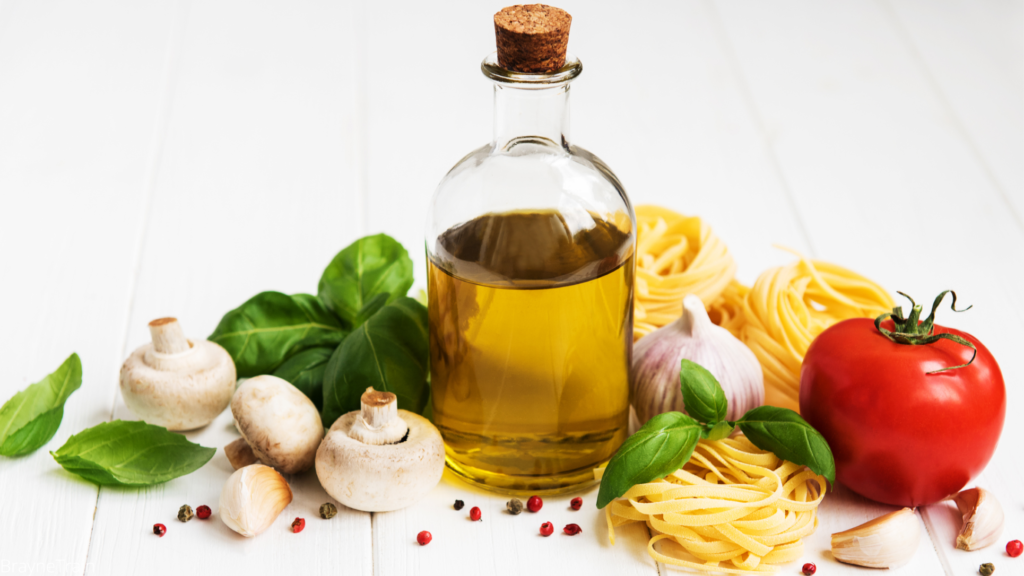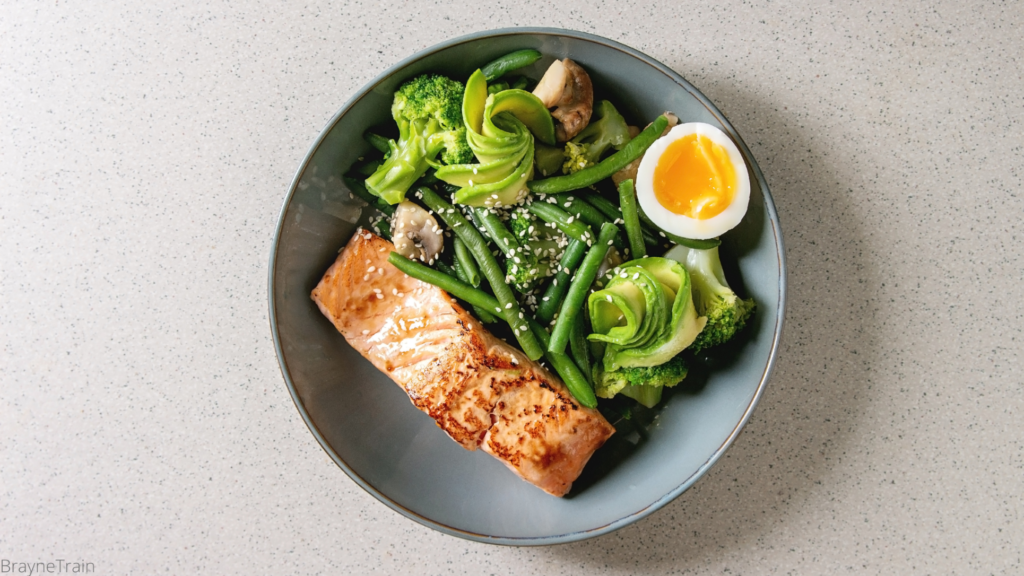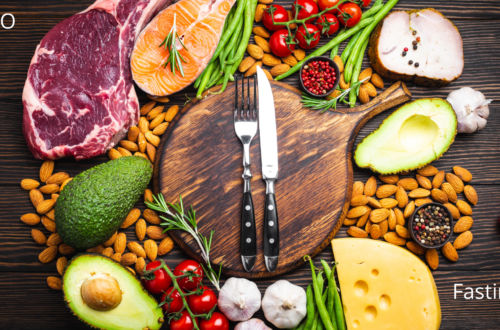
Will you Gain Weight if you Switch from Keto to a Mediterranean Diet?
Have you been on a keto diet and now want to switch to the Mediterranean but are unsure of its consequences?
Studies have shown the Mediterranean diet is one of the healthiest for weight loss and overall health.
However, a few key points must be kept in mind when coming off a ketogenic diet.
Switching from keto to a Mediterranean diet may cause weight gain. The Mediterranean diet has numerous health benefits but it includes more carbohydrates than a keto diet. If the switch is done too quickly, weight gain can occur due to the body’s insulin sensitivity and fast uptake of carbohydrates.
When transitioning out of keto, it is always recommended to take specific steps to help adjust your body to the presence of carbs.
We will go over these steps in this post to help ease your transition out of keto.
Let’s get deeper into it!

What is a Mediterranean Diet?
Created in the 1960s, the “Mediterranean diet” comes from countries bordering the Mediterranean Sea, such as Greece, Italy, Spain, and Turkey.
The Mediterranean diet includes healthy fats, fresh fish, vegetables, fruits, and organic whole grains like beans and lentils. Olive oil is a vital component of this diet.
The Mediterranean diet is high in monounsaturated fats. Monounsaturated fats have many health benefits.
Health Benefits of the Mediterranean Diet:
- Weight loss
- Monounsaturated fats contain oleic acid, which activate brown fat generation. Brown fat is burned to create heat for the body; this is called thermogenesis.
- Lowering blood pressure
- Preventing cardiovascular disease
- Reducing the Risk for Cancer
- Improving Cognitive function

Mediterranean Food List:
- Whole grain: oats, brown rice, barley, corn, buckwheat, rye, whole wheat bread, and pasta
- Vegetables: broccoli, tomatoes, spinach, onions, cauliflower, carrots, Brussels sprouts, cucumbers, potatoes, sweet potatoes, kale, and turnips.
- Seafood: salmon, sardines, mussels, trout, tuna, mackerel, shrimp, oysters, clams, and crab.
- Dairy: healthy aged cheese, yogurt, milk.
- Nuts & seeds: almonds, macadamia nuts, hazelnuts, cashews, pumpkin seeds, walnuts, sunflower seeds, almond butter, and peanut butter.
- Legumes: lentils, beans, peas, pulses, peanuts, chickpeas
- Eggs (pasture-rased): chicken, duck, and quail eggs.
- Fats: Olives, extra virgin olive oil, avocado, avocado oil.
- Poultry: chicken, duck, turkey
- Fruits: bananas, dates, oranges, apples, pears, strawberries, grapes, figs, melons, and peaches.

How to Switch from Keto to a Mediterranean Diet.
If you come off of keto, there is no better diet to switch to than the Mediterranean.
However, it is still recommended to be careful and make your transition methodically. Introducing carbohydrates such as lentils and beans after having been on a ketogenic diet can cause weight gain.
When coming off keto, your body is insulin sensitive and will uptake and absorb carbohydrates quickly.
Steps to Lower the Chance of Gaining Weight After Keto:
- Reduce your fat intake drastically (to 10-20% of you average fat intake) for the first four weeks.
- Studies indicate fats get stored easier when you are not in ketosis.
- Replace fats with healthy, organic proteins and vegetables.
- HIIT (high-intensity interval training).
- Working out, especially HIIT, on an empty stomach first thing in the morning will help burn off the carbohydrates.
- Alternate day fasting.
- Alternate day fasting has shown to be very effective in weight loss and weight maintenance.
- Increase your antioxidants
- When you come off of keto you are no longer using clean fuel (ketones) therefore, it could cause oxidative damage to your cells. Increasing your antioxidants helps prevent the damage.
- Dark chocolate is a great source of antioxidants. Try the 85%-90% dark chocolate.
- Do not Snack.
- Avoid snacking between meals to prevent insulin spikes, and allow your body to rest and metabolize the carbohydrates properly.

Try a Mediterranean-Keto Diet instead!
A Medi-Keto diet is the best of both worlds.
Nutrition experts call Mediterranean Keto the future of Keto because they work so well together.
The ketogenic diet is effective for weight loss, lowering blood pressure, decreasing insulin resistance, and improving blood sugar.
On the other hand, the Mediterranean diet is well known to be one of the healthiest diets for weight loss and heart health.
Combining the two can give you one of the most effective natural tools for weight loss and overall health.

Top 5 Benefits of the Mediterranean-Keto Diet.
- Significant Weight loss.
- In a study by The Journal of Medicinal Foods, 22 obese individuals with metabolic syndrome were placed on a Mediterranean Keto diet for 12 weeks. After 12 weeks, all 22 individuals lost an average weight of nearly 15kg. Their plasma glucose and LDL levels reduced drastically; their triglycerides went from 224 to 109, almost a 50% reduction. All subjects got rid of their metabolic syndrome.
- Reduced inflammation: Lower insulin levels help lower inflammation.
- Improved cognitive function
- The Journal EBIO Medicine published a study that showed a group of people with Cognitive impairment who went on a Ketogenic Mediterranean Diet had a tremendous improvement in their cognitive function. Due to an increase in specific kinds of bacteria in their microbiome.
- Reduced risk of cardiovascular disease.
- Reduced risk of Cancer.

Mediterranean-Keto Diet Recommendations.
Some general recommendations for a successful Mediterranean-Keto diet include:
- Fats: roughly 20% of your fats should come from olive oil, and 20-30% from other monounsaturated fats such as avocado oil, avocados, or macadamia nuts.
- Dark Chocolate: Good quality unsweetened dark chocolate (90% dark) is recommended for an occasional treat.
- Red Wine: drinking 200-400ML per day is acceptable.
- Carbohydrates: The carb intake should be kept less than 30 grams daily and it should come from healthy vegetables. Avoid grains.
- Salads: when making a salad, use more vinegar than oil.
Mediterranean-Keto Food List
- Fats: olive oil, avocado oil, coconut oil, ghee.
- Nuts: pecans, walnuts, pine nuts, brazil nuts, almonds, macadamia nuts.
- Fruit: (less than 10g per day): olives, avacado, berries
- Protein: eggs(organic, pasture-raised), tuna, fish (wild caught), lean red meat, organic chicken, shrimp, prosciutto, ham.
- Dairy: goat cheese, sheep cheese, parmesan, pecorino romano, halloumi cheese
- Vegetables: okra, capers, arugula, artichoke, asparagus, bell pepper, brussel sprouts, broccoli, tomatoes, cabbage, green beans, leafy greens, kale, cauliflower, radishes, leeks, spinach, zucchini.
- Supplements: fish oil, magnesium, MCT oil, apple cider vinegar.
- Snacks: olives, cheese, nuts, seaweed, berries.
Takeaway
If you decide to get off keto and switch to a Mediterranean diet, following the steps we listed in this post is essential to avoid gaining weight. Remember, your body becomes insulin sensitive when following a ketogenic diet, and proper measures must be taken when introducing carbohydrates to your diet. Thank you for reading!
References
Nagpal R, Neth BJ, Wang S, Craft S, Yadav H. Modified Mediterranean-ketogenic diet modulates gut microbiome and short-chain fatty acids associated with Alzheimer’s disease markers in subjects with mild cognitive impairment. EBioMedicine. 2019 Sep;47:529-542. DOI: 10.1016/j.ebiom.2019.08.032. Epub 2019 Aug 30. PMID: 31477562; PMCID: PMC6796564.
Pérez-Guisado J, Muñoz-Serrano A. A pilot study of the Spanish Ketogenic Mediterranean Diet: an effective therapy for the metabolic syndrome. J Med Food. 2011 Jul-Aug;14(7-8):681-7. DOI: 10.1089/jmf.2010.0137. Epub 2011 May 25. PMID: 21612461.
Pérez-Guisado J, Muñoz-Serrano A, Alonso-Moraga A. Spanish Ketogenic Mediterranean Diet: a healthy cardiovascular diet for weight loss. Nutr J. 2008 Oct 26;7:30. doi: 10.1186/1475-2891-7-30. PMID: 18950537; PMCID: PMC2586625.




